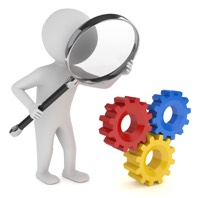
Planned Maintenance
The Planned Maintenance pillar of TPM covers a host of different areas and topics. Intrinsically linked to Autonomous Maintenance and Focused Improvement, Planned Maintenance is an essential element to improving production efficiency.

Preventative Maintenance
An important element of any Planned Maintenance activity is the development of a maintenance calendar. This can be time-based, condition-based and performance-based as required by situation and technology.
Of course, cost is important to any maintenance function, and areas such as spare parts control, lubrication rationalisation are also included in the Planned Maintenance pillar.
An important element of any Planned Maintenance activity is the development of a maintenance calendar. This can be time-based, condition-based and performance-based as required by situation and technology.
Of course, cost is important to any maintenance function, and areas such as spare parts control, lubrication rationalisation are also included in the Planned Maintenance pillar.
Improving Production Efficiency
Planned Maintenance (PM) is one of the key pillars involved in improving production efficiency. The Pillar supports the Autonomous Maintenance work through training, eliminating faults found and establishing basic conditions. Breakdown reduction is also an element of the PM Pillar whether they be sporadic or chronic issues.
Contact us to learn how Planned Maintenance can help your organisation.
Planned Maintenance (PM) is one of the key pillars involved in improving production efficiency. The Pillar supports the Autonomous Maintenance work through training, eliminating faults found and establishing basic conditions. Breakdown reduction is also an element of the PM Pillar whether they be sporadic or chronic issues.
Contact us to learn how Planned Maintenance can help your organisation.

Maintenance: Maintaining or being maintained; keeping going; keeping in repair; supporting
Oxford English Dictionary

